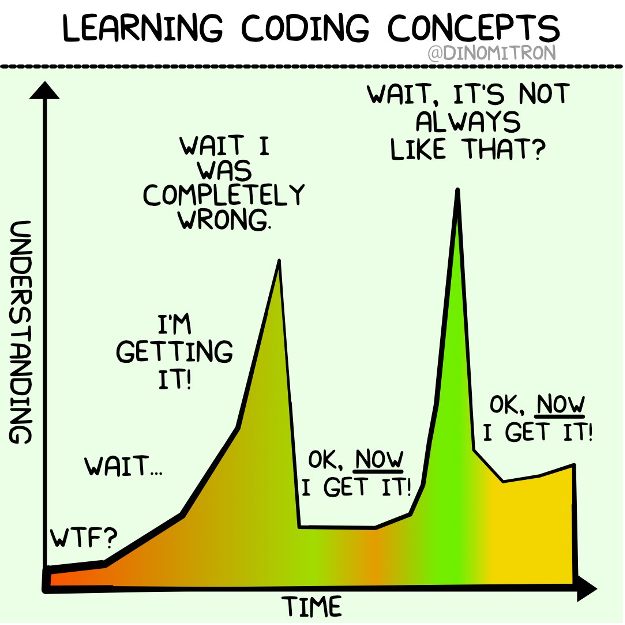Roller Coasters
Roller Coasters can be fun. Big drops. High speeds. Adrenaline rushes. And most of our offices have them relatively close. There’s the Steel Curtain at Kennywood, the Demon at Great America, and the Mind Eraser at Elitch Gardens. There’s even Roller Coaster Trail outside Bozeman.
From the outside it’s big and scary looking. You have some glimpses, but no understanding. You’re in line waiting to in and give it a try. There are folks in line with you who are very familiar with it. They’re telling you how wonderful it is. They describe the details and how it makes all the other coasters look tame.
There are also folks in line for the first time. They’re laughing nervously. Not quite sure what they’ve gotten themselves into. You can see the tension. The glances at the big drop or the loop. When a car rattles overhead they startle or duck. But they keep slowly moving forward. Nervously settling into the car when it’s their turn.
You start up the first big hill. The experienced folks are cheering. The novices are enjoying the view, but their heart rate and blood pressure are going up. They nervously check pockets to make sure things are secure.
You reach the top of the hill. Speed picks up. Wind in your hair. You float a little (or maybe a lot) in the seat. Let out a scream or two. The track levels out, the G-force builds. A couple of dips and sharp turns and you realize, you’ve got this. It’s fun. Probably with doing again. You start back up the other big hill. You’re confident. You’ve done this before.
Then the track drops out from under you. You’re in free fall. Then you’re upside down in a loop, a corkscrew, or both. How did we get here? What just happened? About the time you’ve internalized it you’re back at the station. An experienced rider, quite likely ready to do it again.
But there’s another kind of roller coaster we deal with a lot more often. That’s the roller coaster of understanding. It goes something like this.

New technologies are like that. I understand most of Kubernetes. I’ve been using Golang for a few years now. I’m pretty sure I get go functions and channels, but I’ve felt that way before, so there might be another hill coming.
Learning patterns is the same way. When you first learn them, you see the application for them everywhere, and you overuse them. But with time and experience, you learn not just when and how to use them, when and how to not use them.
And it's not just learning that is like a roller coaster. There are so many parts of the development cycle that feel like that. But those are stories for another time.
Regardless, the key is to push through. With humility as you realize there’s always more to learn.
